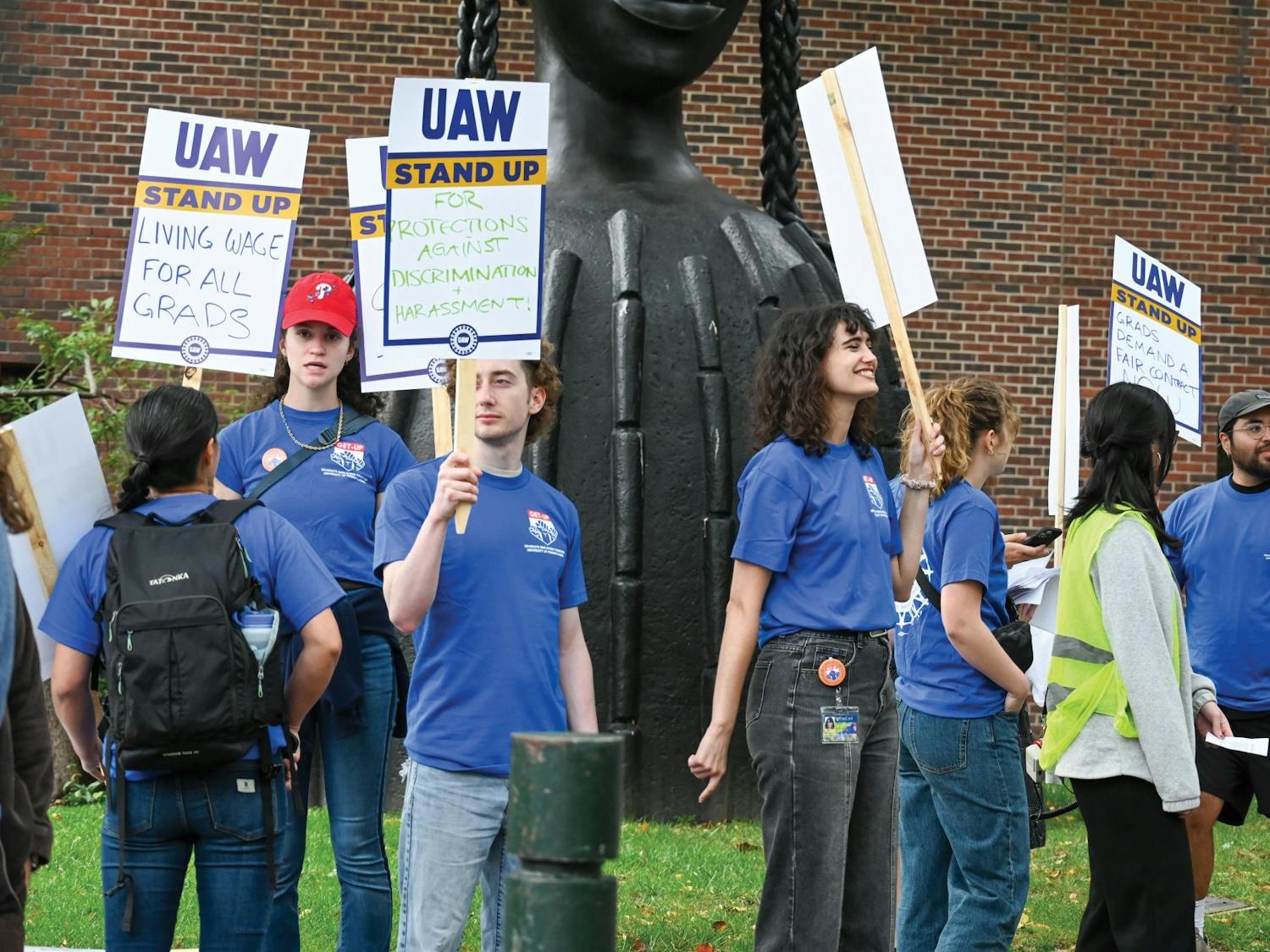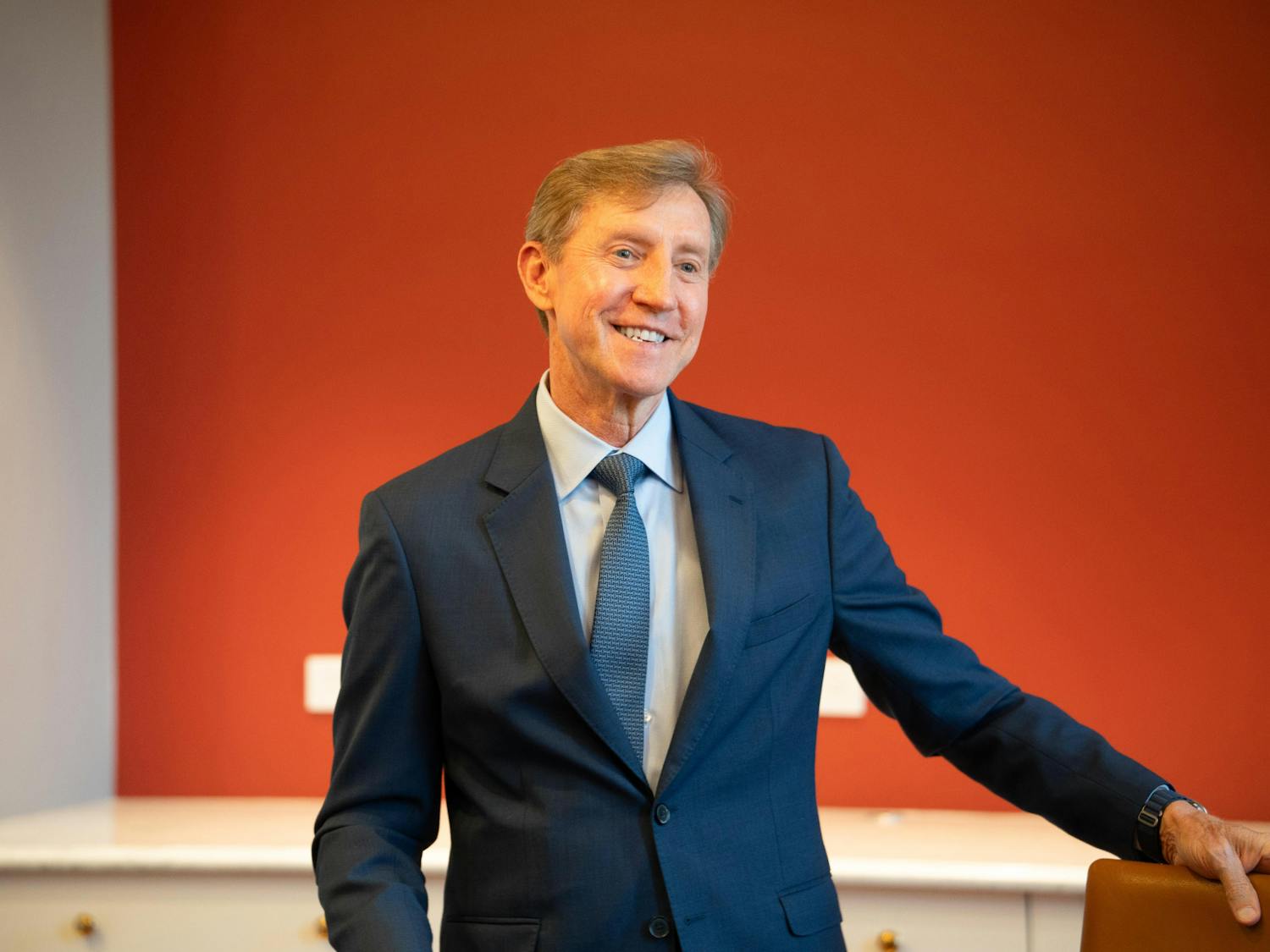The departure of former Dean of Admissions Lee Stetson has shown how much power Penn President Amy Gutmann wields, raising questions about the role of the Board of Trustees in checking the president's power.
Since Stetson resigned abruptly and without explanation at the beginning of the semester, Gutmann has refused to comment publicly about the departure, only saying that it is in the "best interests" of both Penn and Stetson.
However, Gutmann's reticence to release the details of Stetson's resignation has been greeted with a profound silence on the part of the Board of Trustees - Penn's top governing body - and other high-level figures.
No trustee or upper-level administrator has publicly criticized Gutmann's handling of the departure.
Indeed, most trustees contacted throughout the semester by The Daily Pennsylvanian said they knew nothing about the reasons behind the resignation - and many said they were OK with that.
"As a trustee, I hold [Gutmann] responsible for the operation of the University day-to-day," said Robert Gleason, a trustee on the external affairs committee. "I'm not even concerned about the reasons why anybody leaves."
This opinion was echoed by James Kim, a trustee emeritus - who said he trusts Gutmann to handle the situation - as well as other trustees, who said they accepted the administration's assurance that it was handling the departure properly.
The trustees said they felt it was not their place to get publicly involved in managing personnel decisions.
The way in which these trustees view their responsibility to the University - which affords Gutmann wide latitude in decision-making - stands in contrast with expectations of members of corporate boards.
In the wake of a series of corporate scandals like Enron's collapse and the subsequent passage of the Sarbanes-Oxley Act, private-sector board members are expected to take a more active role in managing their companies and providing a check on the powers of upper-level management.
While there is no such statutory obligation for trustees of nonprofit organizations like Penn, the way in which university presidents should be held accountable for their actions is a debated issue.
Though advocates for nonprofit reform said personnel issues are usually handled by a college president without input from the board, they did say transparency is an important part of accountability and keeping trustees informed about sensitive issues is vital.
"When the situation turns into an intrigue like this . it would make sense if the president of the university would chat with the board and give some explanation of what happened," said Outi Flynn of BoardSource, a consulting firm for nonprofits. "In principle, the board is the independent body for the organization."
But there can be dangers in affording a college president too much power.
"When a board perceives a president as an indispensable heroic leader, then trustees disengage from governance or accord the CEO undue deference," wrote Richard Chait, a professor at Harvard's Graduate School of Education, in The Chronicle of Higher Education in February 2006.
"The board [then] becomes less a source of leadership and intellectual capital and more a source of technical assistance and financial support," he wrote.
Staff writer Albert Sun contributed reporting for this article.








